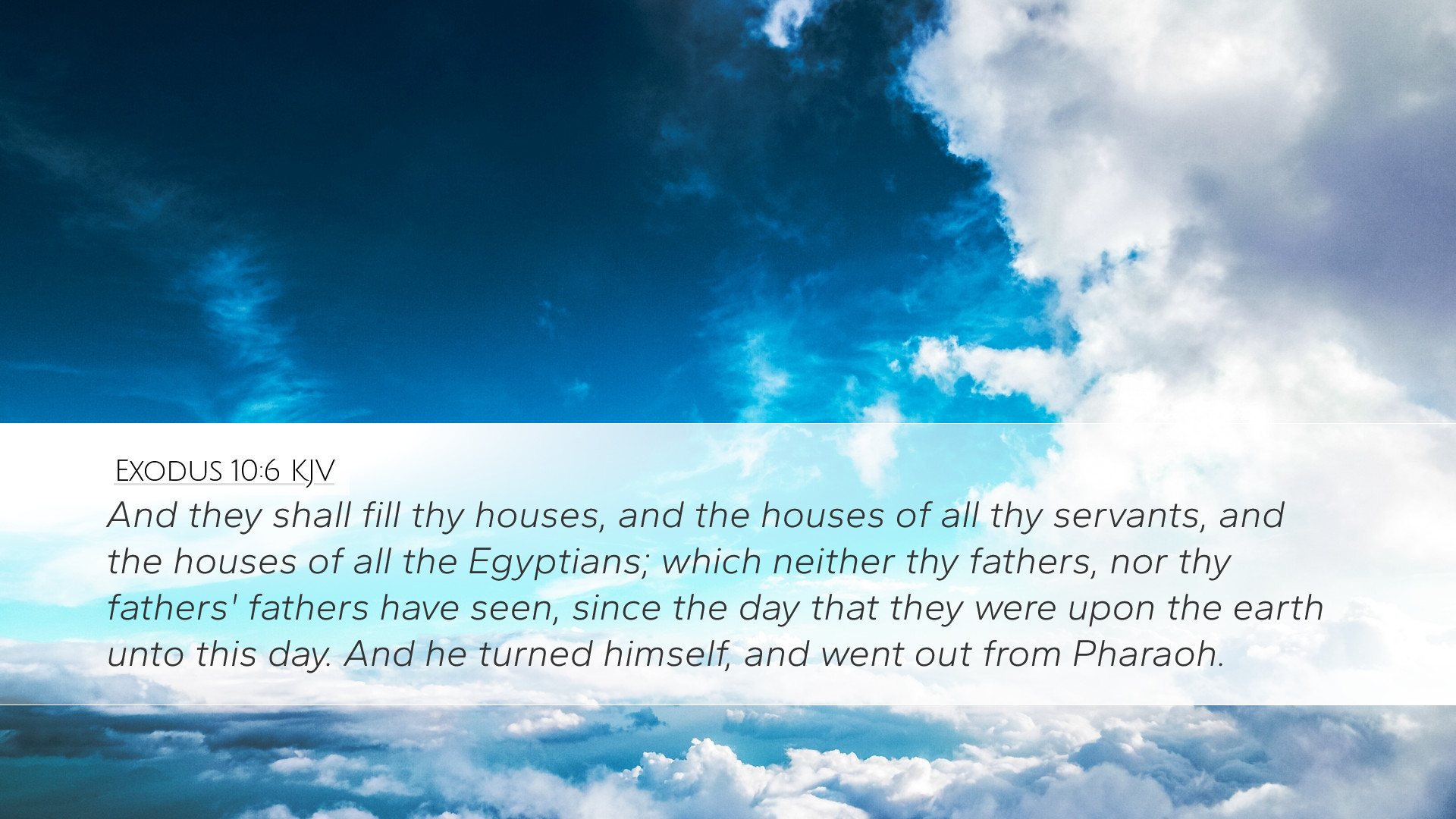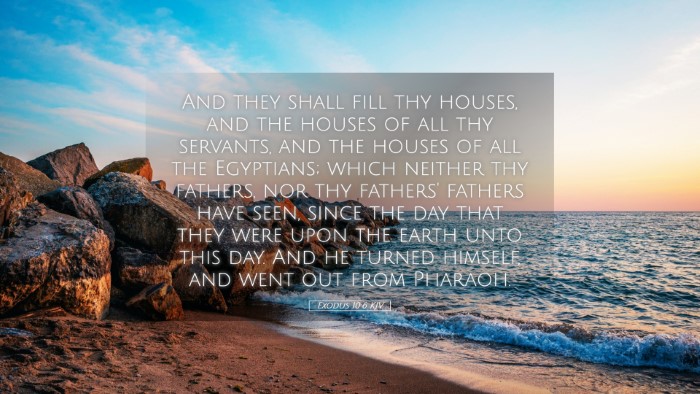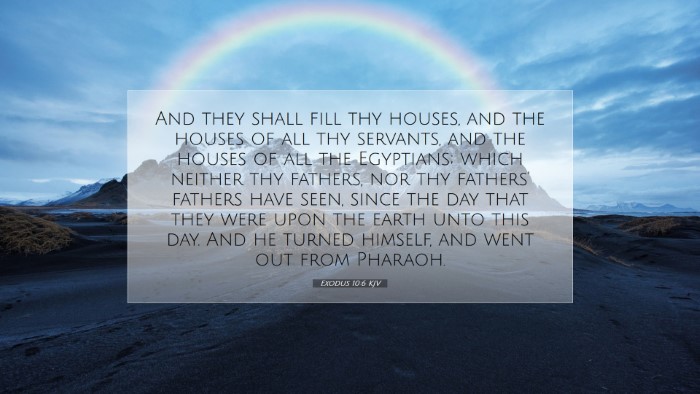Commentary on Exodus 10:6
Verse Reference: Exodus 10:6 - "And they shall fill thy houses, and the houses of all thy servants, and the houses of all the Egyptians; which neither thy fathers nor thy fathers’ fathers have seen, since the day that they were upon the earth unto this day." And he turned himself, and went out from Pharaoh.
Introduction
This passage falls within the narrative of the plagues that God inflicted upon Egypt to compel Pharaoh to release the Israelites from slavery. The specific verse captures the climax of the eighth plague, the locusts, and serves to highlight the severity of the divine judgment being executed upon Egypt due to Pharaoh's obstinacy. The descriptions within the verse suggest not just a literal infestation but also the theological implications of judgment and mercy intertwined in God's dealings with humanity.
The Nature of the Plague
Matthew Henry's Perspective: According to Henry, the locusts represent an unparalleled judgment on Egypt. Their impending arrival is framed not merely as a natural disaster but as a supernatural sign of God’s displeasure. They would invade every corner of Egypt, overwhelming homes, fields, and even the hearts of the Egyptians. Henry emphasizes that this demonstration of power is aimed at bringing Pharaoh to a point of decision regarding the release of the Israelites.
Albert Barnes' Insights: Barnes points out that this event carries significant implications regarding the wealth and household of the Egyptians. The locusts would invade private homes and personal resources, symbolizing a thorough and disruptive judgment. He elaborates that the extent of this plague would be unprecedented, signifying that such devastation had not been witnessed by former generations. This description serves to magnify the seriousness of the matter at hand.
Adam Clarke's Analysis: Clarke notes the locusts’ total consumption of all that is green, indicating not only the physical loss but also the spiritual void it would create. He asserts that the nature of this judgment encapsulates the consequence of Egypt's idolatry and refusal to acknowledge the one true God. Clarke also underlines the timing of the event, which allows for the revelation of God’s glory and the prostration of the gods of Egypt.
Theological Implications
Divine Sovereignty: Across these commentaries, a theme emerges highlighting the sovereignty of God. The complete engulfing of Egypt in darkness and destruction serves as a testament to God's control over creation. As noted by Henry, this plague also functions to remind both Israelites and Egyptians of the unparalleled power of the God of Israel.
Judgment and Mercy: The duality of judgment and mercy is a prevalent theme in these biblical narratives. While God’s justice is evident through the punishment of Egypt, the Israelites receive mercy and protection. Barnes eloquently states that these acts serve to distinguish between the righteous and the wicked, a message that resonates through generations about the seriousness of disobedience to God.
Historical Context: Clarke illustrates the importance of understanding Egypt's history and its previous unyielding stance against Israel. The long-standing oppression is not merely a societal failure but a direct affront to God’s plans for His people. It serves as a reminder to current readers of the ongoing struggle between divine justice and human rebellion.
Application for Modern Readers
This passage and commentary remind modern believers and theologians of the seriousness of sin and the looming consequences of disobedience toward God. As pastoral leaders and scholars reflect upon these insights, they can derive numerous lessons pertinent to contemporary faith practice.
- Awareness of Divine Judgments: Pastors should encourage congregants to recognize the realities of divine judgment and the importance of living in alignment with God’s will.
- Understanding God’s Mercy: The juxtaposition of mercy portrayed through the protection of Israel invites believers to appreciate and respond to God’s grace in their lives.
- Engagement with Scripture: Students and scholars are prompted to immerse themselves in the context of Scripture, understanding how historical narratives inform their present faith.
Conclusion
Exodus 10:6 serves not only as a historical account of God’s judgment upon Egypt but also as a profound statement on divine sovereignty, judgment, and mercy. The implications of this passage reach into the lives of modern believers, challenging them to be mindful of their relationship with God and the obedience He expects. By examining the insights of accomplished commentators like Matthew Henry, Albert Barnes, and Adam Clarke, we gain a multifaceted understanding that enriches both theological discourse and spiritual application.


